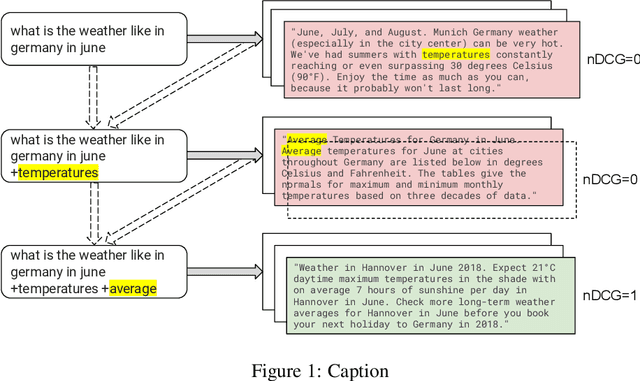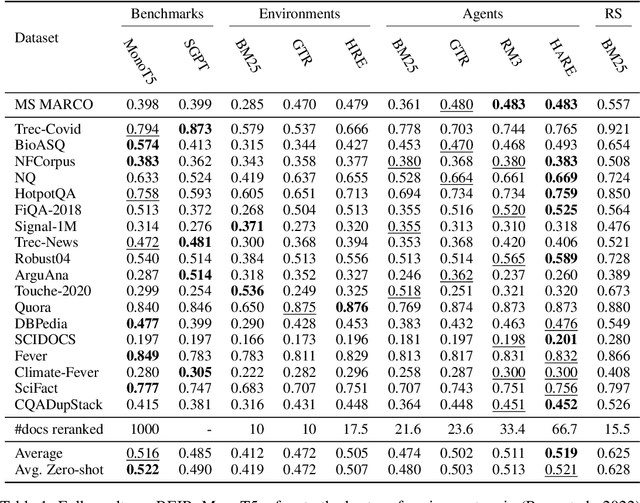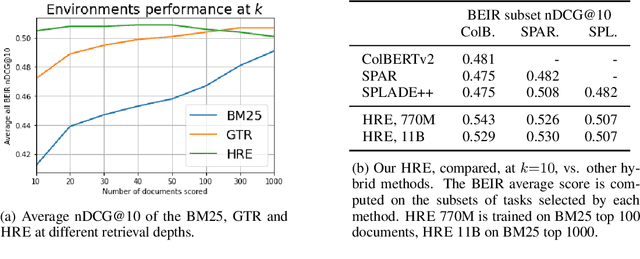Zero-Shot Retrieval with Search Agents and Hybrid Environments
Paper and Code
Sep 30, 2022



Learning to search is the task of building artificial agents that learn to autonomously use a search box to find information. So far, it has been shown that current language models can learn symbolic query reformulation policies, in combination with traditional term-based retrieval, but fall short of outperforming neural retrievers. We extend the previous learning to search setup to a hybrid environment, which accepts discrete query refinement operations, after a first-pass retrieval step performed by a dual encoder. Experiments on the BEIR task show that search agents, trained via behavioral cloning, outperform the underlying search system based on a combined dual encoder retriever and cross encoder reranker. Furthermore, we find that simple heuristic Hybrid Retrieval Environments (HRE) can improve baseline performance by several nDCG points. The search agent based on HRE (HARE) produces state-of-the-art performance on both zero-shot and in-domain evaluations. We carry out an extensive qualitative analysis to shed light on the agents policies.
 Add to Chrome
Add to Chrome Add to Firefox
Add to Firefox Add to Edge
Add to Edge